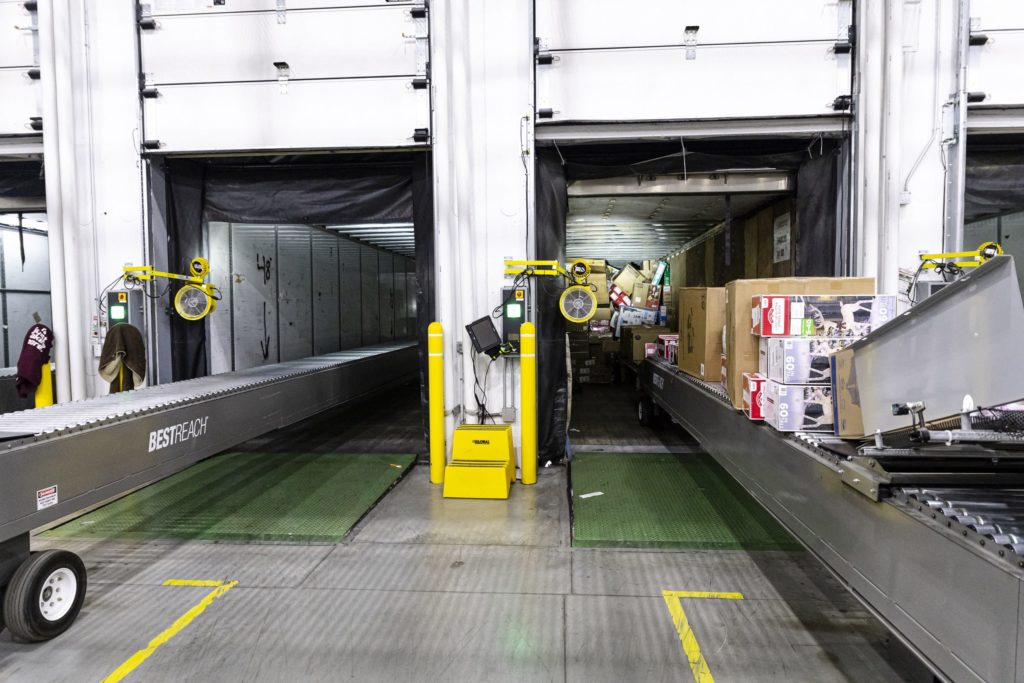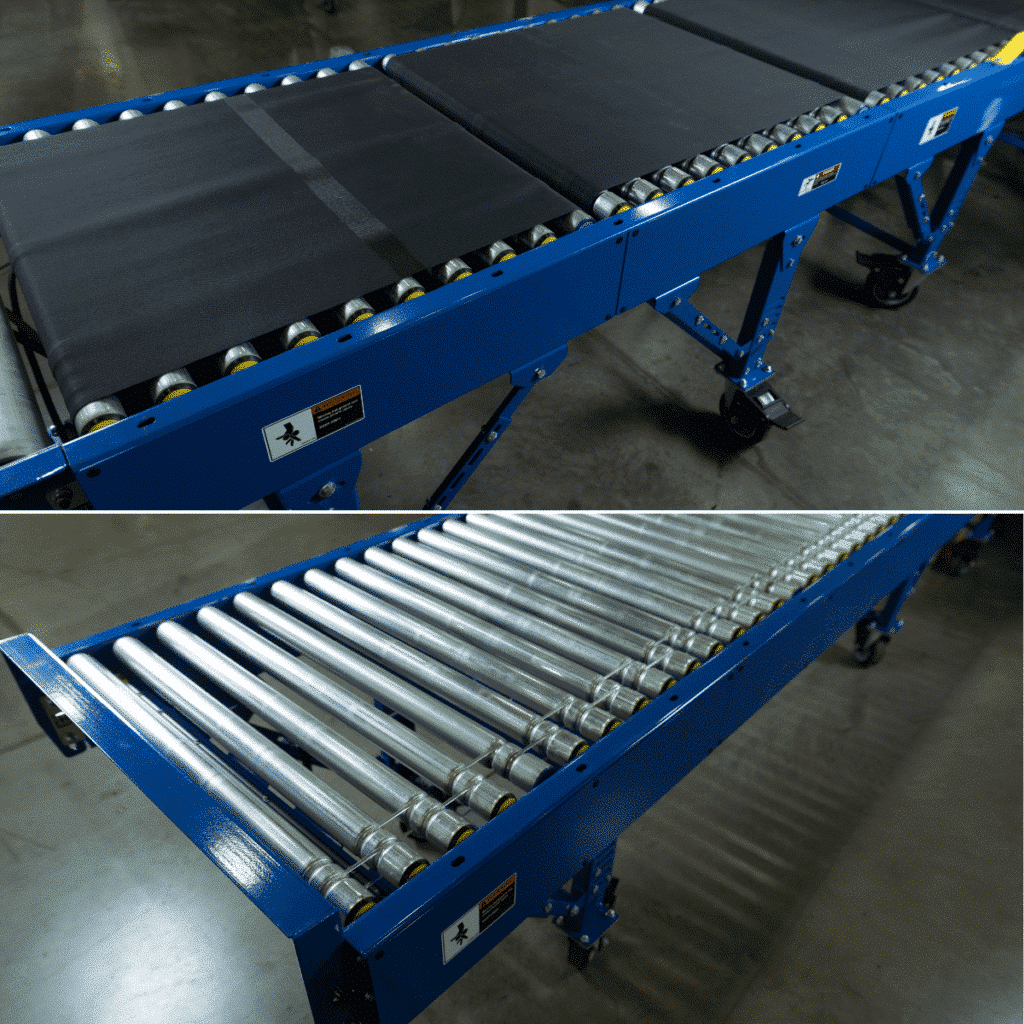The Duravant family of operating companies serve the food processing, packaging and material handling segments.
Maximize Efficiency with Conveyors
18/07/2023
If you are looking for ways to improve your productivity and profitability, you may want to consider integrating conveyors into your operations. Conveyors are automated systems that transport materials or products from one point to another, reducing manual labor, increasing speed and accuracy, and optimizing the use of space.
Benefits of Using Conveyors
Conveyors can offer many advantages for your business, such as:
- Saving time and money: Conveyors can move materials or products faster and more efficiently than human workers, reducing the need for hiring, training, and supervising additional staff. Conveyors can also reduce the risk of errors, damage, and accidents, which can lead to lower costs and higher customer satisfaction.
- Increasing flexibility and scalability: Conveyors can be easily configured and reconfigured to suit different production requirements, such as changing the layout, adding or removing stations, or adjusting the speed or direction of the flow. Conveyors can also handle a variety of materials or products, from small and delicate items to large and heavy ones, allowing you to diversify your product range and meet changing customer demands.
- Enhancing safety and ergonomics: Conveyors can eliminate the need for workers to lift, carry, or push heavy or awkward loads, reducing the risk of injuries and fatigue. They can also improve the working environment by minimizing noise, dust, and clutter, creating a more comfortable and productive workplace.

Tips on Choosing the Right Type of Conveyor for Your Needs
FMH offers different types of conveyors, each with its own features and functions. Some of the most common types are:
- Belt conveyors: These are continuous loops of flexible material that move over rollers. They are suitable for transporting light to medium-weight materials or products over long distances or inclines. They can also handle curved or irregular shapes.
- Roller conveyors: These are a series of rollers that rotate freely or are driven by a motor. They are good for transporting heavy or bulky materials or products over short distances or level surfaces. They can also handle straight or angled paths.
To choose the right type of conveyor, you should consider factors such as:
- The size, weight, shape, and condition of the materials or products you want to transport
- The distance, speed, direction, and frequency of the transport
- The layout, space, and budget of your facility
- The safety, maintenance, and energy requirements of the conveyor system

Summary
Integrating conveyors into your operations can help you maximize your efficiency and profitability by saving time and money, increasing flexibility and scalability, and enhancing safety and ergonomics. However, you should also carefully evaluate your needs and options before selecting the best type of conveyor for your situation.
FMH is an industry-leading conveyor company committed to creating customized solutions across a broad range of industries. If you need more guidance or assistance on choosing or installing conveyors for your industry, contact us today.








